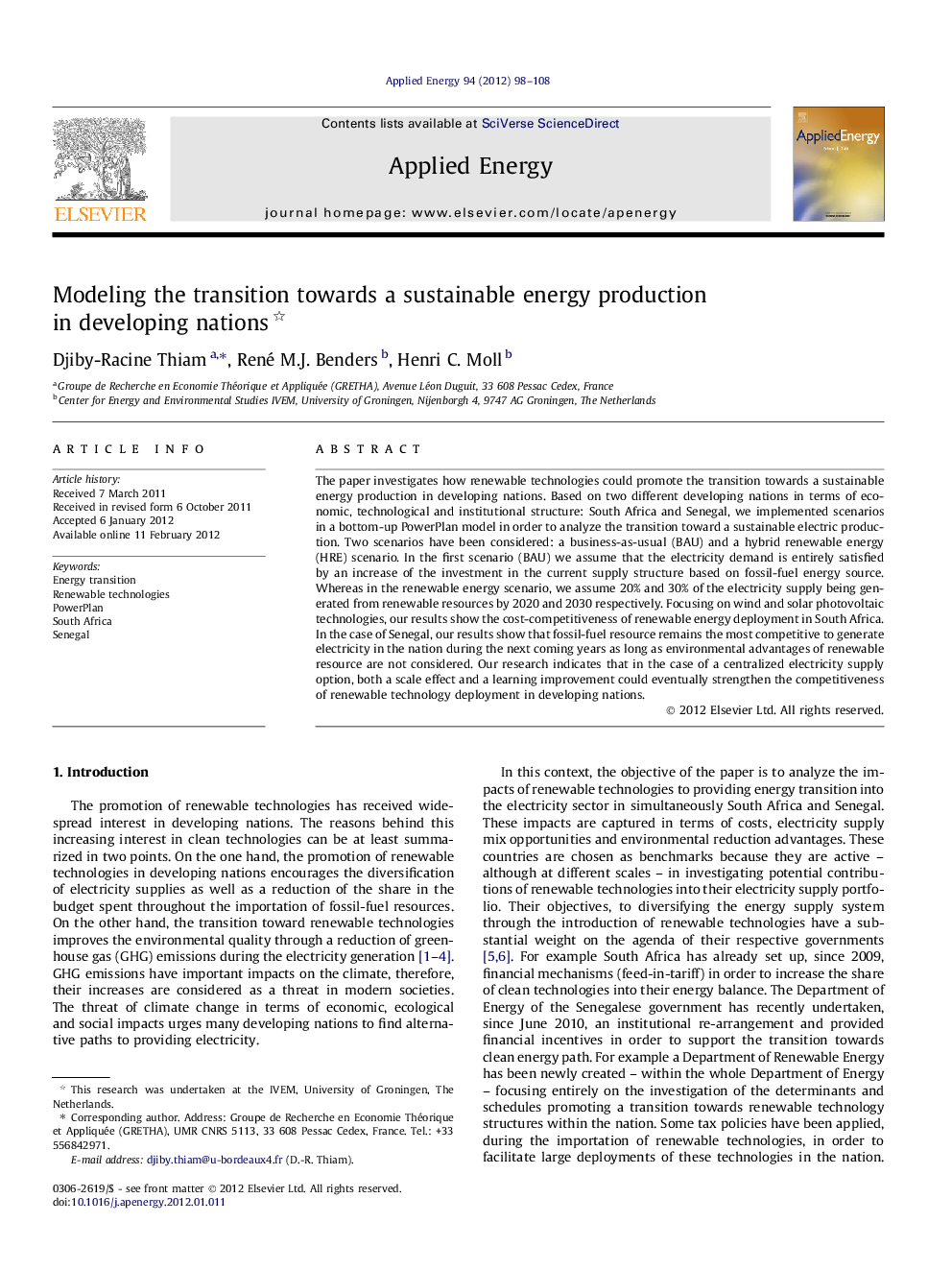| کد مقاله | کد نشریه | سال انتشار | مقاله انگلیسی | نسخه تمام متن |
|---|---|---|---|---|
| 243396 | 501928 | 2012 | 11 صفحه PDF | دانلود رایگان |

The paper investigates how renewable technologies could promote the transition towards a sustainable energy production in developing nations. Based on two different developing nations in terms of economic, technological and institutional structure: South Africa and Senegal, we implemented scenarios in a bottom-up PowerPlan model in order to analyze the transition toward a sustainable electric production. Two scenarios have been considered: a business-as-usual (BAU) and a hybrid renewable energy (HRE) scenario. In the first scenario (BAU) we assume that the electricity demand is entirely satisfied by an increase of the investment in the current supply structure based on fossil-fuel energy source. Whereas in the renewable energy scenario, we assume 20% and 30% of the electricity supply being generated from renewable resources by 2020 and 2030 respectively. Focusing on wind and solar photovoltaic technologies, our results show the cost-competitiveness of renewable energy deployment in South Africa. In the case of Senegal, our results show that fossil-fuel resource remains the most competitive to generate electricity in the nation during the next coming years as long as environmental advantages of renewable resource are not considered. Our research indicates that in the case of a centralized electricity supply option, both a scale effect and a learning improvement could eventually strengthen the competitiveness of renewable technology deployment in developing nations.
► We assess the impacts of low carbon technologies on energy transition.
► Based on South Africa and Senegal, we use PowerPlan bottom-up simulation model.
► We have found that low carbon technologies are cost-competitive in South Africa.
► Scale and learning effects strengthen the competitiveness of low carbon technologies.
Journal: Applied Energy - Volume 94, June 2012, Pages 98–108